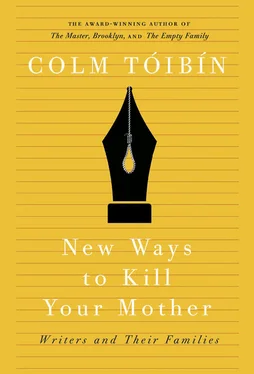The cards were shuffled all right; and the idea that there was a limit to the number of people any government can put in prison became a joker; the game included the possibility of ‘three strikes and you’re out’, with all the mindlessness and lack of compassion that that implied. At the end of 2005, there were close to 2.2 million prisoners in federal, state or local jails in the United States. Three thousand one hundred and forty-five black men out of every 100,000 lived as sentenced prisoners, compared to 471 white male sentenced prisoners per 100,000 white males; this compares to an estimated 3,000 out of every 100,000 members of the population of Russia who were in jail during Stalin’s reign. As of 2006, seven million people in the United States were behind bars, on probation or on parole. The United States has 5 per cent of the world’s population and 25 per cent of its prisoners, 737 per 100,000 compared to 100 in Australia and 59 in Norway and 37 in Japan and 29 in Iceland and India. England and Wales, with roughly the same crime rate as the United States, have 149 per 100,000 in prison. A report from the Justice Department estimated that 12 per cent of American black men in their twenties and early thirties are in jail now, compared to 1.6 per cent of white males of the same age group. The general prison numbers in the United States have doubled since 1990.
In his address to Harlem schoolteachers in 1963, Baldwin set the context for crime among young black men. He wrote about every street boy’s relationship to the law.
If he is really cunning, really ruthless, really strong — and many of us are — he becomes a kind of criminal. He becomes a kind of criminal because that’s the only way he can live. Harlem and every ghetto in this city — every ghetto in this country — is full of people who live outside the law. They wouldn’t dream of calling a policeman… They have turned away from the country forever and totally. They live by their wits and really long to see the day when the entire structure comes down.
It seems sad, almost strange, reading his work now, even when its tone was calm and ambiguous and measured, but especially as he grew angry and strident, to realize that, in the twenty years after James Baldwin’s death, brand-new structures made of concrete have gone up all over America with laws to match, and in those buildings much of the beauty he wrote about, and many of the dreams his friends had, lie incarcerated. Baldwin’s legacy is to help us understand how something has happened that even he could not have imagined.
Baldwin and Obama: Men Without Fathers
It seemed important, as both men set about making their marks on the world, for them to establish before anything else that their stories began when their fathers died and that they set out alone without a father’s shadow or a father’s permission. James Baldwin’s Notes of a Native Son , published in 1955, begins: ‘On the 29th of July, in 1943, my father died.’ Baldwin was almost nineteen at the time. Barack Obama’s Dreams from My Father , published in 1995, begins also with the death of his father: ‘A few months after my twenty-first birthday, a stranger called to give me the news.’
Both men quickly then established their own actual distance from their fathers, which made their grief sharper and more lonely, but also emphasized to the reader that they had a right to speak with authority, to offer this version of themselves partly because they themselves, through force of will and a steely sense of character, had invented the voice they were now using, had not been trained by any other man to be the figure they had become. ‘I had not known my father very well,’ Baldwin wrote. ‘We got on badly, partly because we shared, in our different fashions, the vice of stubborn pride. When he was dead I realized that I had hardly ever spoken to him. When he had been dead a long time I began to wish I had.’
Of his father, Barack Obama wrote: ‘At the time of his death, my father remained a myth to me, both more and less than a man. He had left Hawaii back in 1963, when I was only two years old, so that as a child I knew him only through the stories that my mother and grandparents told.’ Both men then, using photographs and memories, commented on their fathers’ blackness. In both cases it seemed important to state or suggest that the father was more black than the son. Baldwin wrote that there was something buried in his father that had lent him his ‘tremendous power and, even, a rather crushing charm. It had something to do with his blackness, I think — he was very black — with his blackness and his beauty.’
When Obama was a child, he wrote, ‘my father looked nothing like the people around me in that he was black as pitch, my mother white as milk’.
In both cases too, the writers sought to make clear that their fathers’ pasts were not their own pasts, but the past as a different country, a country they did not share. ‘He was of the first generation of free men,’ Baldwin wrote. ‘He, along with thousands of other Negroes, came North after 1919 and I was part of that generation which had never seen the landscape of what Negroes sometimes call the Old Country.’ Obama’s father was from a place even more distant: ‘He was an African, I would learn, a Kenyan of the Luo tribe, born on the shores of Lake Victoria in a place called Alego.’
Although Obama mentions in passing in Dreams from My Father that he had read Baldwin when he was a young community activist in Chicago, there is no hint in the book that he modelled his own story in any way on Baldwin’s work. In their versions of who they became in America and how, there are considerable similarities and shared moments not because Obama was using Baldwin as a template or an example, but because the same hurdles and similar circumstances and the same moments of truth actually occurred almost naturally for both of them.
Baldwin and Obama, although in different ways, experienced the church and intense religious feeling as key elements in their lives. They both travelled and discovered while abroad, almost as a shock, an essential American identity for themselves while in the company of non-Americans who were black. They both came to see, in a time of political division, some shared values with the other side. They both used eloquence with an exquisite, religious fervour.
As Northerners, they both were shocked by the South. They both had to face up to the anger, the rage, that lay within them, and everyone like them, as a way of taking the poison out of themselves. It is almost as though, in their search for power — Baldwin becoming the finest American prose stylist of his generation, Obama the President of the United States — they would both have to gain wisdom, both bitter and sweet, at the same fount, since no other fount was available. Their story is in some ways the same story because it could hardly have been otherwise.
In the essay ‘Notes of a Native Son’, James Baldwin wrote about rage: ‘There is not a Negro alive who does not have this rage in his blood — one has the choice, merely, of living with it consciously or surrendering to it. As for me, this fever has recurred in me, and does, and will until the day I die.’ In his speech on race in March 2008, Barack Obama, in tones more measured, more patient, but no less urgent, dealt with the same issues as they were experienced more than fifty years after Baldwin’s essay appeared:
That legacy of defeat was passed on to future generations — those young men and increasingly young women who we see standing on street corners or languishing in our prisons, without hope or prospects for the future. Even for those blacks who did make it, questions of race, and racism, continue to define their worldview in fundamental ways. For the men and women of Reverend Wright’s generation, the memories of humiliation and doubt and fear have not gone away; nor has the anger and the bitterness of those years. That anger may not get expressed in public, in front of white coworkers or white friends. But it does find voice in the barbershop or around the kitchen table. At times, that anger is exploited by politicians, to gin up votes along racial lines, or to make up for a politician’s own failings.
Читать дальше












